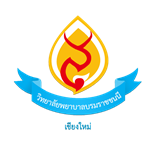ผลของการเตรียมความพร้อมก่อนการฝึกภาคปฏิบัติโดยใช้สถานการณ์จำลองเสมือนจริง เป็นฐานการเรียนรู้ ต่อความมั่นใจในด้านความรู้ ทักษะปฏิบัติ และเจตคติ ของนักศึกษาพยาบาลชั้นปีที่ 2
คำสำคัญ:
สถานการณ์จำลองเสมือนจริง, การเตรียมความพร้อมก่อนฝึกปฏิบัติ, ปฏิบัติการพยาบาล, นักศึกษาพยาบาลบทคัดย่อ
การวิจัยกึ่งทดลองแบบสองกลุ่มนี้ มีวัตถุประสงค์เพื่อเปรียบเทียบความมั่นใจในด้านความรู้ ทักษะปฏิบัติ และเจตคติของนักศึกษาพยาบาลชั้นปีที่ 2 ที่ได้รับการเตรียมความพร้อมก่อนการฝึกปฏิบัติรายวิชาปฏิบัติหลักการ และเทคนิคการพยาบาล โดยใช้สถานการณ์จำลองเสมือนจริงเป็นฐานการเรียนรู้ กลุ่มตัวอย่าง คือ นักศึกษาพยาบาล ชั้นปีที่ 2 วิทยาลัยพยาบาลบรมราชชนนี เชียงใหม่ จำนวน 68 คน แบ่งเป็นกลุ่มควบคุมและกลุ่มทดลอง กลุ่มละ 34 คน โดยใช้การสุ่มตัวอย่างแบบง่าย เครื่องมือที่ใช้ในการดำเนินการวิจัย ได้แก่ สถานการณ์จำลองเสมือนจริง เครื่องมือที่ใช้ในการเก็บรวบรวมข้อมูล ได้แก่ แบบสอบถามเพื่อประเมินความมั่นใจในความรู้ ทักษะปฏิบัติ และเจตคติต่อการฝึกปฏิบัติ วิเคราะห์ข้อมูลโดยใช้สถิติเชิงพรรณนา และสถิติทดสอบค่าที
ผลการศึกษา พบว่า หลังการได้รับการเตรียมความพร้อมโดยใช้สถานการณ์จำลองเสมือนจริงเป็นฐานการเรียนรู้ กลุ่มทดลอง มีระดับความมั่นใจด้านความรู้ (Mean = 3.93, S.D. = 0.66) สูงกว่ากลุ่มควบคุม (Mean = 3.37, S.D. = 0.69) อย่างมีนัยสำคัญทางสถิติ (p-value < 0.001) นอกจากนี้ยังมีระดับทักษะปฏิบัติ (Mean = 3.94, S.D. = 0.66) สูงกว่ากลุ่มควบคุม (Mean = 3.34, S.D. = 0.77) อย่างมีนัยสำคัญทางสถิติ (p-value < 0.001) ส่วนด้านเจตคติระหว่างกลุ่มควบคุมกับกลุ่มทดลองพบว่าไม่มีความแตกต่างกัน อย่างมีนัยสำคัญทางสถิติ โดยพบว่ากลุ่มทดลองมีระดับความมั่นใจด้านเจตคติ (Mean = 3.70, S.D. = 0.59) สูงกว่าก่อนได้รับการเตรียมความพร้อมโดยใช้สถานการณ์จำลองเสมือนจริงเป็นฐานการเรียนรู้ อย่างมีนัยสำคัญทางสถิติ (p-value < 0.01) ผลการวิจัยนี้แสดงให้เห็นว่าการใช้สถานการณ์จำลองเสมือนจริงเป็นฐานการเรียนรู้ ส่งเสริมให้นักศึกษาเกิดความมั่นใจทั้งด้านความรู้ ทักษะปฏิบัติ และเจตคติ ดังนั้น สามารถนำไปเป็นแนวทางในการจัดการศึกษา ทางการพยาบาลที่มีประสิทธิภาพต่อไป
เอกสารอ้างอิง
ขวัญฤทัย ธรรมกิจไพโรจน์, จันทร์ฉาย มณีวงษ์ และจารุวรรณ สนองญาติ. (2566). การจัดการเรียนการสอนโดยใช้สถานการณ์จำลองเสมือนจริงต่อการคิดอย่างมีวิจารณญาณของนักศึกษาพยาบาล: การทบทวนวรรณกรรมอย่างเป็นระบบ. วารสารวิทยาลัยพยาบาลบรมราชชนนี สุพรรณบุรี, 6(1), 5-28.
จิรานุวัฒน์ ชาญสูงเนิน. (2564). การจัดการเรียนการสอนโดยใช้สถานการณ์เสมือนจริง: การศึกษาพยาบาล. วารสารเทคโนโลยีภาคใต้, 14(1), 145-153.
ทิศนา แขมมณี. (2564). ศาสตร์การสอน: องค์ความรู้เพื่อการจัดกระบวนการเรียนรู้ที่มีประสิทธิภาพ. (พิมพ์ครั้งที่ 25). กรุงเทพฯ: สำนักพิมพ์แห่งจุฬาลงกรณ์มหาวิทยาลัย.
ปนิดา พุ่มพุทธ และขวัญตา ภูริวิทยาธีระ. (2565). ผลของการสอนโดยใช้สถานการณ์จำลองเสมือนจริงในการเตรียมความพร้อมนักศึกษาพยาบาลก่อนการฝึกภาคปฏิบัติรายวิชาปฏิบัติการพยาบาลบุคคลที่มีปัญหาทางจิต. วารสารการพยาบาลสุขภาพและการศึกษา, 5(3), 37-46.
พนารัตน์ วิศวเทพนิมิต, อุบล สุทธิเนียม และเสมอจันทร์ ธีระวัฒน์สกุล. (2563). ผลของการเรียนรู้โดยใช้สถานการณ์เสมือนจริงในการเตรียมความพร้อมก่อนการฝึกปฏิบัติการพยาบาลผู้ป่วยที่มีภาวะช็อค ต่อความพึงพอใจ ความมั่นใจในตนเองในการเรียนและการตัดสินใจทางคลินิกของนักศึกษาพยาบาล.วารสารวิจัยทางวิทยาศาสตร์สุขภาพ, 14(3), 59-70.
พรรณทิพย์ ชับขุนทด, ปรางทิพย์ ทาเสนาะ เอลเทอร์, นุชมาศ แก้วกุลฑล และรัชนี พจนา. (2563). ผลของการจัดการเรียนรู้โดยใช้สถานการณ์จำลอง ต่อความรู้ ความมั่นใจ และความสามารถในการใช้กระบวนการพยาบาลมารดาและทารกในระยะคลอดของนักศึกษาพยาบาล.วารสารวิชาการสาธารณสุข, 29(6), 1062-1072.
มญช์พาณี ขำวงษ์, สุทธานันท์ กัลป์กะ, วิไลลักษณ์ ศิริมัย และชาลินี หนูชูสุข. (2565). ผลของการเรียนรู้โดยการใช้สถานการณ์จำลองต่อความมั่นใจในตนเอง ในการปฏิบัติทักษะการสนทนาเพื่อการบำบัดของนักศึกษาพยาบาล. วารสารวิจัยสุขภาพและการพยาบาล, 4(3), 178-194.
ละมัด เลิศล้ำ, ชนิดา ธนสารสุธี, สุภาเพ็ญ ปานะวัฒนพิสุทธิ์ และชัชรีย์ บำรุงศรี. (2562). การพัฒนารูปแบบการจัดการเรียนการสอนด้วยสถานการณ์จำลองเสมือนจริง. วารสารเครือข่ายวิทยลัยพยาบาลและสาธารณสุขภาคใต้, 6(ฉบับพิเศษ), 43-58.
ศุภรัตน์ แจ่มแจ้ง, วิรดา อรรถเมธากุล, รัตนา นิลเลื่อม และนาตยา วงศ์ยะรา. (2564). ผลของการเรียนรู้โดยใช้สถานการณ์จำลองเสมือนจริงต่อความสามารถในการแก้ปัญหาทางการพยาบาลและความมั่นใจในการปฏิบัติการพยาบาลผู้ป่วยที่มีปัญหาสุขภาพของนักศึกษาพยาบาล. วารสารวิทยาลัยพยาบาลพระจอมเกล้า จังหวัดเพชรบุรี, 4(3), 179-194.
สุมนา โสตถิผลอนันต์. (2566). บทบาทสมมุติในสถานการณ์จำลองและแนวทางพัฒนาสมรรถนะเชิงวิชาชีพ. สืบค้นเมื่อ 2 สิงหาคม 2566 จาก https://he01.tci-thaijo.org › article › download.pdf.
Abdelkader, A., & Elcokany, N. (2022). Satisfaction and self-confidence with simulation learning experience as perceived by nursing students. International Journal of Virtual and Personal Learning Environments (IJVPLE), 12(1), 1-13.
Awad, M. S., Abdullah, M. K., Ibrahim, R. H., & Abdulla, R. K. (2019). Nursing students’ attitudes toward simulation technology in nursing education. International Journal of Emerging Technologies in Learning (Online), 14(14), 31. https://doi.org/10.3991/ijet.v14i14.10571
Burns, N. & Grove, S. K. (2009) The practice of nursing research: appraisal, synthesis and generation of evidence (6th ed.). Saunders Elsevier, St. Louis.
Deering, S., Auguste, T. C., & Goffman, D. (Eds.). (2018). Comprehensive healthcare simulation: Obstetrics and gynecology. Education and Practice, 8, 95-102.
Flood, L. S., & Higbie, J. (2016). A comparative assessment of nursing students' cognitive knowledge of blood transfusion using lecture and simulation. Nurse education in practice, 16(1), 8-13. https://doi.org/10.1016/j.nepr.2015.05.008
Hilleren, I. H. S., Christiansen, B., & Bjørk, I. T. (2022). Learning practical nursing skills in simulation centers-a narrative review. International Journal of Nursing Studies Advances, 100090. https://doi.org/10.1016/j.ijnsa.2022.100090
Heidarzadeh, H., Heidarzadeh, Z., & Azadi, A. (2020). Comparison of pre-hospital triage training by role playing and lecture on nursing students' knowledge, attitude and performance. Nursing Open, 7(4), 935-942.
Karatas, C., & Tuzer, H. (2020). The effect of simulation-based training on the self-confidence and self-satisfaction of nursing students dealing with patients under isolation. Bezmialem Science, 8(3), 227. https://doi.org/10.14235/bas.galenos.2019.341
Kolb, A. Y., & Kolb, D. A. (2005). Learning styles and learning spaces: Enhancing experiential learning in higher education. Academy of Management Learning & Education, 4(2), 193-212. https://doi.org/10.5465/AMLE.2005.17268566
Labrague, L. J., McEnroe-Petitte, D. M., Bowling, A. M., Nwafor, C. E., & Tsaras, K. (2019). High-fidelity simulation and nursing students’ anxiety and self-confidence: A systematic review. In Nursing Forum, 54(3), 358-368. https://doi.org/10.1111/nuf.12337
Lendahls, L. & Oscarsson, M. G. (2017). Midwifery students' experiences of simulation and skills training. Nurse Education Today, 50, 12-16. https://doi.org/10.1016/j.nedt.2016.12.005
Mahfouz, R., Almutairi, A., & Eldesouky, E. (2019). Self-confidence of nursing students related to their simulation learning experience. Journal of Education and Practice, 10(15), 168-173. https://doi.org/10.7176/jep/10-15-20
Nojima, K., Nishino, T., & Martinez, M. (2023). Changes in active class attitudes towards learning and in discussion skills of nursing university students engaged in simulation-based education. Clinical Simulation in Nursing, 79, 1-5. https://doi.org/10.1016/j.ecns.2022.12.002
Olaussen, C., Heggdal, K., & Tvedt, C. R. (2020). Elements in scenario-based simulation associated with nursing students' self-confidence and satisfaction: A cross-sectional study. Nursing Open, 7(1), 170-179. https://doi.org/10.1002/nop2.375
Rashwan, Z. I. (2023). Motivation inspiring confidence: Effect of scenario-based learning on self-confidence among prelicensure nursing students. Teaching and Learning in Nursing, 18(3), e1-e8. https://doi.org/10.1016/j.teln.2023.01.008

ดาวน์โหลด
เผยแพร่แล้ว
รูปแบบการอ้างอิง
ฉบับ
ประเภทบทความ
สัญญาอนุญาต
ลิขสิทธิ์ (c) 2024 วารสารวิจัยการพยาบาลและการสาธารณสุข

อนุญาตภายใต้เงื่อนไข Creative Commons Attribution-NonCommercial-NoDerivatives 4.0 International License.
1. บทความหรือข้อคิดเห็นใด ๆ ที่ปรากฏในวารสารวิจัยการพยาบาลและการสาธารณสุข ที่เป็นวรรณกรรมของผู้เขียน บรรณาธิการไม่จำเป็นต้องเห็นด้วย
2. บทความที่ได้รับการตีพิมพ์ถือเป็นลิขสิทธิ์ของ วารสารวิจัยการพยาบาลและการสาธารณสุข








